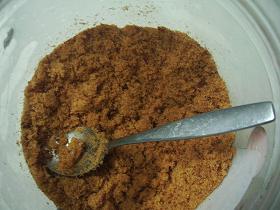 The U.S. Census Bureau released this week their annual report on income, poverty, and health insurance. The numbers were probably no surprise to anyone living through this recession. Poverty was up, median household income was down. Buried in the data, included information on how the recession is affecting minorities and immigrants. It turns out the recession has hit Hispanic families the worst (income down 5.6%), followed most closely by Asians (income down 4.4%), while income was only down 2.8% for African American families and 2.6% for non-Hispanic white families. Given that data it’s probably no surprise that families with a foreign born head of household, dropped 5.3% in income compared with 3.5% for native born head of household families.
The U.S. Census Bureau released this week their annual report on income, poverty, and health insurance. The numbers were probably no surprise to anyone living through this recession. Poverty was up, median household income was down. Buried in the data, included information on how the recession is affecting minorities and immigrants. It turns out the recession has hit Hispanic families the worst (income down 5.6%), followed most closely by Asians (income down 4.4%), while income was only down 2.8% for African American families and 2.6% for non-Hispanic white families. Given that data it’s probably no surprise that families with a foreign born head of household, dropped 5.3% in income compared with 3.5% for native born head of household families.
It’s obvious from this report and others, that there are few that the recession has not affected. Reading these numbers I couldn’t help but reflect about how my own parents handled the move to the United States, and the recession they had to live through in the early 1970’s. They were immigrant parents with 3 young children living on an incredibly small income. My mother found many ways to save money, and to make money last through an entire month (my dad was paid monthly). I learned a lot about budgeting, saving money, bargain hunting, and surviving on little from my mom. She was an overnight expert at it, especially surprising given she grew up in a pretty wealthy family in Taiwan.
There’s one thing I remember most from that period in time, and that’s how we used to go fishing for snappers off the Long Island coast, and how we’d bring home the snappers and my mother would spend days making rou-song from the fish, and how that smell would permeate through the house. It usually took four days to finish making the rou-song and it would last us for weeks. I’d get teased by other kids at school since often it was a main component of my lunch, and to them my fish rou-song looked like little ants, but I knew it was a necessary part of keeping our family going.
In addition to the numbers released from the Census Bureau, this week brought the recession to little kids, like my own 4-year old daughter. On Wednesday night my daughter and I watched a new episode of Sesame Street, which featured the recession and its affect on families and kids. Sesame Street also put together a resource page for any parents that needs to explain the recession (and its effects on the family) to their kids. If you or your family happen to be more affected adversely by this recession than most, good luck to you, and may it at least bring your family closer together.







